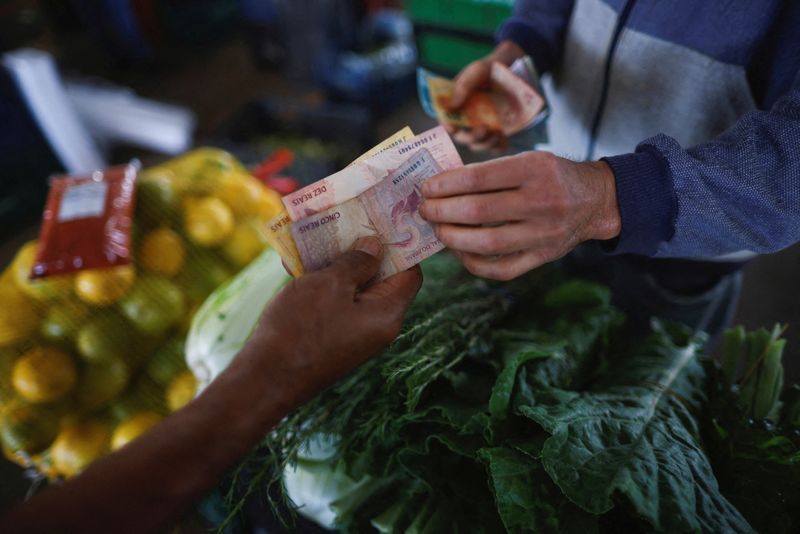SAO PAULO (Reuters) -Brazil's annual inflation accelerated in mid-September to 5.00%, data from statistics agency IBGE showed on Tuesday, coming in line with market expectations as the central bank signals it will maintain its current pace of monetary easing.
Analysts believe inflation in Latin America's largest economy has already reached its lowest for the year while remaining relatively under control, allowing the monetary authority to keep lowering borrowing costs.
The IPCA-15 consumer price index gained steam in mid-September compared to the 4.61% reading seen at the end of the previous month, but roughly matched the 5.01% forecast by economists polled by Reuters.
"The inflation picture looks benign despite the year-over-year rebounds in recent months, which have been due to unfavorable base effects," said Andres Abadia, chief Latin America economist at Pantheon Macroeconomics. "Leading indicators suggest that disinflation will resume next month."
The latest figures are likely to back the central bank's stance of cutting its benchmark interest rate at a pace of 50 basis points per meeting, despite government officials suggesting it could pick up the pace this year.
The central bank delivered its second 50-basis-point cut in a row to 12.75% earlier this month and flagged further cuts of the same magnitude ahead, as some of its board members remain cautious given economic activity and labor market resilience.
Larger rate cuts would require substantial positive surprises in inflation, according to the central bank, and that is not what the mid-September figures showed.
"Although the headline figure surprised downward, the acceleration of some important items of services inflation drew attention," said Andrea Angelo, inflation strategist at brokerage Warren Rena.
"It didn't show an inflection in services disinflation, so it remains at a good level, but it also didn't bring the additional improvement that was expected in the second half," Angelo added.
The central bank, which in August reduced rates for the first time in three years after a nearly year-long hold following 1,175 basis points of hikes to battle inflation, has vowed to act "firmly" to bring inflation back to target.
Its goal for 2023 is 3.25% plus or minus 1.5 percentage points, but the target will be trimmed to 3% next year.

In the month to mid-September, according to IBGE, consumer prices rose 0.35%, up from 0.28% the previous month and slightly below the 0.38% increase projected in a Reuters poll.
That was mainly driven by higher transportation costs as gasoline prices rose, the statistics agency said, while housing and personal expense costs also jumped. Lower food and beverage prices partially offset those increases.
